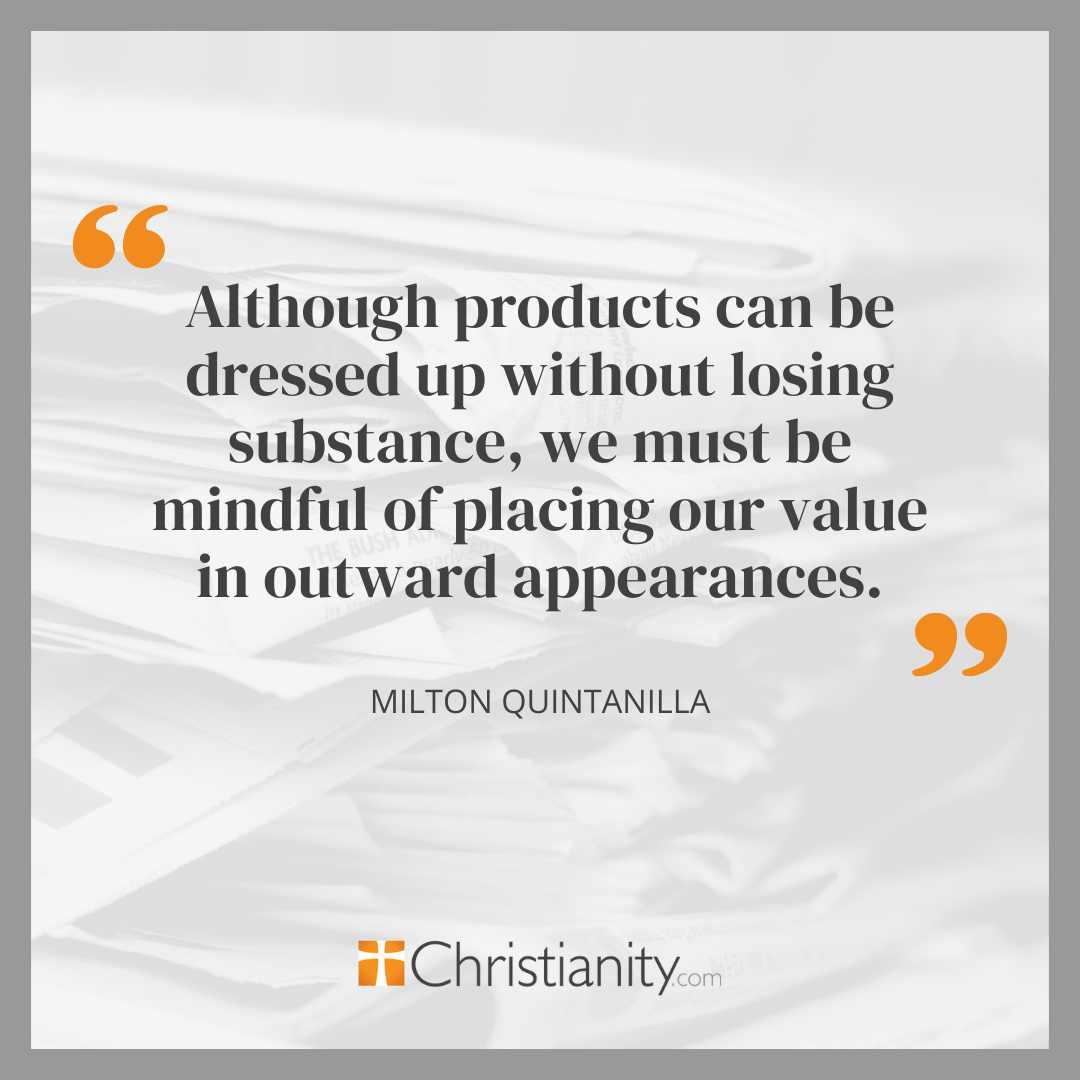Sneakflation has become a troubling trend in our world today. In sneakflation, companies subtly cut product quality, ingredients, or features without increasing prices. Examples of sneakflation can range from cheaper clothing fabrics and downgraded frozen meals to streaming services littered with ads or reduced show budgets.
Although the prices remain the same, we buy something of diminished quality without notice. As Christians, we must be reminded that we live in a fallen world where deception is prevalent. The heart is deceitful above all things (Jeremiah 17:9), so we must remember that people will attempt to deceive others through what they’re selling to make money. That being said, Christians are to ask the following question: “In a world where honesty is quietly eroded through subtle downsizing and deception, how do we uphold the biblical call to integrity, recognize true worth beyond appearances, and steward resources with wisdom and discernment?”
The Importance of Integrity
Integrity is “a steadfast adherence to a strict moral or ethical code”. We understand that serving God requires integrity as we are to live by His Word. The Lord himself values integrity. According to Proverbs 11:11, the Scripture says, “The Lord detests dishonest scales, but accurate weights find favor with him.” Unfortunately, sneakflation mirrors those “dishonest scales” because of the lower product quality without raising the prices.
As Christians, it is important to walk with integrity. The psalmist David says “Vindicate me, O LORD, for I have walked in my integrity, and I have trusted in the LORD without wavering (Psalm 26:1). In the New Testament, Jesus calls us to live with honesty, to let our “yes” be yes and our “no” be no (Matthew 5:37). This principle applies to how we live our lives, including in the context of business and finance.
Although the world values external appearances, God looks at the heart. When the Lord commissioned his prophet Samuel to go to Bethlehem to anoint the next king of Israel among the sons of Jesse, following Saul’s disobedience (see 1 Samuel 16). Although Samuel was impressed by Jesse’s eldest son, Eliab, due to his appearance, God corrected the prophet by telling him how He primarily looks at the heart. The text reads as follows:
“But the LORD said to Samuel, “Do not look on his appearance or on the height of his stature, because I have rejected him. For the LORD sees not as man sees: man looks on the outward appearance, but the LORD looks on the heart.” (v.7).
This verse goes to show what matters most to God: our hearts. Similarly, the apostle Peter calls Christian wives not to let their “adorning be external—the braiding of hair and the putting on of gold jewelry, or the clothing you wear—but let your adorning be the hidden person of the heart with the imperishable beauty of a gentle and quiet spirit, which in God’s sight is very precious.” (1 Peter 3:3-4).
Although products can be dressed up without losing substance, we must be mindful of placing our value in outward appearances. Ultimately, we have to give an account of ourselves before God, so we can’t focus on how impressive we look externally.

Cultivating Discernship Amid Sneakflation
We must also cultivate discernment when it comes to stewardship. In Luke 16:8, Jesus shares a parable about how a rich man commended the shrewd steward for his awareness of the world’s ways. The Scripture states,
“The master commended the dishonest manager for his shrewdness. For the sons of this world are more shrewd in dealing with their own generation than the sons of light.”
Although dishonest, the manager displayed more discernment than God’s people. Christians should be the first to cultivate discernment because they live in a fallen world, where they need to understand what’s true from what’s false. Again, we can’t focus on the externals lest we easily get deceived. Regarding sneakflation, believers must not be persuaded by convenience or marketing. Just because something may be reasonably priced doesn’t mean the product is worth it. We could be paying for something that would lose value sooner than expected. For those selling such products, it is better to reconsider how they are being sold for the sake of integrity and being honest with their customers.
Having this type of discernment is essential as it allows us to question whether what we want to purchase is worth it or if we even need it. Consumerism is on every side, so we must tread cautiously not to fall into its vice. Practice discernment even when things are on sale, not just for quality but also for quantity. We don’t need to purchase everything that is being promoted. If anything, you might have to take a break from shopping frequently unless it's for essential things such as buying food to cook at home.
Focus on Eternal, Not External Matters
Friends, I cannot stress enough the importance of valuing eternal matters over external ones. In the context of discipline, the apostle Paul writes that although there is value in physical discipline, spiritual discipline unto godliness surpasses it much more, “as it holds promise for the present life and also for the life to come” (1 Timothy 4:7-10). Godliness entails a desire to love our Lord and be more like Jesus, and practicing this discipline far exceeds physical discipline as athletes do. This text is merely an example of how our focus should be on eternal, not external matters.
Another thing to consider is that all products will fade away regardless of quality. Therefore, we should not place our hope on them. Jesus says, “No one can serve two masters, for either he will hate the one and love the other, or he will be devoted to the one and despise the other. You cannot serve God and money” (Matthew 6:24). Our devotion should be exclusive to Christ lest we make idols of whatever else we focus on.
Our hope should also be in the Lord, in whom “every good and perfect gift comes from Him” (James 1:17). We know His provision is good, so we know that what He will provide will not be defective by any stretch of the imagination. Just as God cares for the birds and clothes the flowers, He cares about our tomorrows (Matthew 6:26-30). Elsewhere, our Savior says, “What does it profit a man if he gains the entire world but loses his soul. (Mark 8:36). We must be mindful of this truth; otherwise, we will only get caught up in a fading world with all of its temporary pleasures.
We must focus on the eternal because God is eternal. As the Scripture says, “from everlasting to everlasting, you are God” (Psalm 90:2). As his people, we have been given eternal life thanks to Christ, who clothes us in His righteousness. We must also understand that we have inherent worth in our Lord that far exceeds our possessions, whether affected by sneakflation or not. It is easy to measure one's worth based on what one owns, but it is very dangerous because that is not what we should base our worth on. Let us place our worth in the Lord, in whom we are both fearfully and wonderfully made (Psalm 139:14). Everything else will fade, but God is forever. Most importantly, He will be with us forever as we spend eternity with Him.
Photo Credit: ©Unsplash/ Emil Kalibradov




